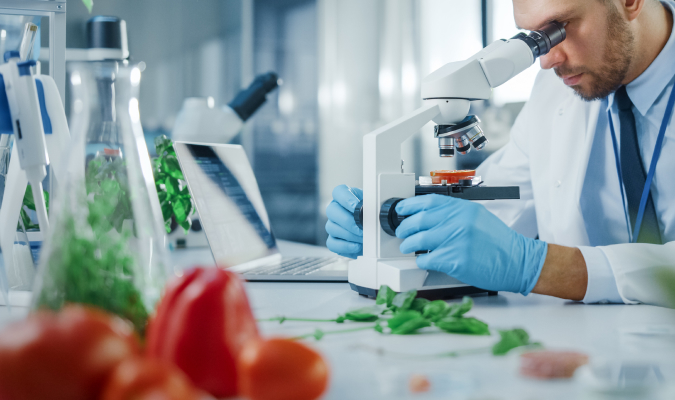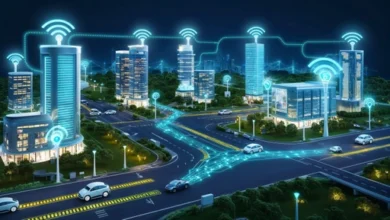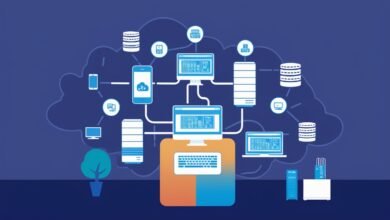What is Bioscience Technology?

What Is Bioscience Technology (BT)?
Introduction:
Bioscience Technology is an exciting field that blends biology with technology to comprehend life processes better and solve biological issues. From groundbreaking medical treatments to sustainable agricultural practices, this emerging discipline makes significant strides in scientific innovation while making meaningful contributions across various fields.
Historical Background. Explore:
Early Developments of Bioscience
Bioscience technology can be traced back to early discoveries in biology and chemistry. The invention of the microscope in the 17th century opened up new worlds in understanding living organisms and laid down the foundation for modern bioscience research.
Bioscience Technology Milestones Key milestones include:
- The discovery of DNA’s structure in 1953.
- The advent of recombinant DNA technology in the 1970s.
- Completion of the Human Genome Project in 2003.
Each milestone propelled bioscience technology forward, enabling precise genetic modifications and comprehensive biological data analysis.
Key Areas of Bioscience Technology:
1. Biotechnology
Biotechnology utilizes biological systems and organisms to develop products and technologies for human benefit. This includes everything from brewing beer to developing life-saving drugs.
2. Biomedical Engineering:
Biomedical engineering marries engineering principles with biological knowledge to create devices and technologies to advance healthcare delivery, such as prosthetics, imaging machines and diagnostic tools.
3. Genetic Engineering:
Genetic engineering involves directly altering an organism’s genes to modify its traits, making this a compelling technology with applications in medicine, agriculture and research.
4. Bioinformatics:
Bioinformatics refers to the application of computational tools for managing, analyzing, and understanding biological data. It is vital in genomics, proteomics, and personalized medicine research.
Applications of Bioscience Technology:
1. Health care
Health care Bioscience technology is critical in creating innovative drugs, medical diagnostics, and treatment methods. Techniques like CRISPR have revolutionized gene therapy – offering hope to those struggling with genetic disorders.
2. Agriculture through Bioscience Technology:
Bioscience technology improves agricultural productivity by engineering genetically modified crops to be resistant to pests, diseases, and environmental stresses, leading to higher yields and more sustainable farming practices.
3. Environmental Science
Bioscience technology is integral in protecting the environment through bioremediation, using microorganisms to decompose contaminants. Furthermore, this field helps manage climate change through monitoring and mitigating effects.
4. Industrial Applications
Industrial Applications Bioscience technology plays an essential role in industries by contributing to the creation of biofuels, biodegradable materials, and environmentally friendly manufacturing processes that lower the environmental footprints associated with their activities.
Advancements in Bioscience Technology:
1. CRISPR and Gene Editing
Advancements in bioscience technology allow scientists to edit genes with unrivalled precision, opening new opportunities for treating genetic diseases and improving agricultural biotechnology.
2. Synthetic Biology
Synthetic Biology Synthetic biology refers to designing and engineering biological components and systems. This approach allows scientists to create custom organisms tailored for specific tasks, such as producing biofuels or pharmaceuticals.
3. Nanotechnology in Bioscience
Nanotechnology allows researchers to create nanoscale devices and materials that interact with biological systems in novel ways, leading to advances in drug delivery systems and diagnostic techniques.
4. Personalized Medicine
Customized medicine tailors treatments specifically to each individual, using genetic data to inform disease prevention, diagnosis, and treatment decisions.

Bioscience Technology in Healthcare:
1. Drug Development
Drug Development Its Bioscience technology speeds drug development by using high-throughput screening and bioinformatics to rapidly identify promising new drug candidates while simultaneously predicting their efficacy and safety.
2. Medical Diagnostics
Modern diagnostic technologies, including next-generation sequencing and imaging technologies, enable early and accurate disease detection, resulting in better patient outcomes.
3. Regenerative Medicine
Regenerative medicine aims to repair or replace damaged tissues and organs through techniques like stem cell therapy or tissue engineering, offering hope for treating previously incurable conditions.
Bioscience Technology in Agriculture:
1. GMO Crops
Genetically modified (GM) crops can be engineered with traits like pest resistance, herbicide tolerance and improved nutritional content to increase food security and agricultural sustainability.
2. Pest and Disease Control
Biotechnology offers advanced pest and disease control solutions, including biological pesticides and genetically engineered organisms, to address specific agricultural threats.
3.Sustainable Farming Practice
Bioscience technology supports sustainable farming practices through precision agriculture, which uses data and technology to optimize crop yields while decreasing environmental impact.
Environmental Implications of Bioscience Technology:
1. Bioremediation
Bioremediation uses living organisms to remove or neutralize environmental contaminants through soil, water, and air purification processes. It offers a natural yet effective solution for cleaning up polluted environments.
2. Conservation Efforts
Bioscience technology aids conservation efforts by enabling the monitoring and preservation of biodiversity – including endangered species through genetic research.
3. Climate Change Mitigation
Technological advances in bioscience help mitigate climate change by developing crops that can withstand extreme weather conditions and biofuels that lower greenhouse gas emissions.
Ethical Considerations in Bioscience Technology:
1. Genetic Modification Ethics
Genetic Modification Ethics The ethical implications of genetic modification, from potential unintended outcomes to informed consent requirements, remain an area of much discussion and regulatory oversight.
2. Privacy Concerns in Genomic Data
Genomics data collection raises serious privacy issues, with sensitive information potentially misused or accessed without consent; consequently, robust data protection measures must be implemented.
3. Regulating Bioscience Technology:
Regulating bioscience technology involves balancing innovation and safety, ensuring that new technologies undergo thorough tests before becoming widely adopted.
Future Trends of Bioscience Technology:
1. Emerging Trends
Emerging Trends in bioscience technology include the incorporation of artificial intelligence in research, the creation of new biotechnological tools, and the expansion of synthetic biology applications.
2. Potential Breakthroughs:
Potential breakthroughs may include advanced gene therapies, next-generation biofuels, and innovative agricultural practices that could transform food production while protecting environmental sustainability.
3. Challenges Ahead
Challenges Ahead Future obstacles will include addressing ethical concerns, navigating regulatory landscapes and providing equitable access to bioscience technologies across different populations.
Conclusion:
Bioscience technology is an emerging field with far-reaching implications across healthcare, agriculture, environmental science, and industry. As it continues to advance, it promises significant advances that can enhance the quality of life while meeting some of our most pressing global challenges. For enroll now !
FAQ’s
What are the main branches of bioscience technology?
Bioscience technology encompasses four significant disciplines: biotechnology, biomedical engineering, genetics, and bioinformatics.
How is bioscience technology impacting daily life?
Bioscience technology impacts everyday life through healthcare improvements, increased agricultural yields, and the development of eco-friendly industrial processes, as well as contributing to environmental preservation.
What ethical issues arise with bioscience technology?
Some ethical considerations associated with bioscience technology include concerns over genetic modification, the privacy of genomic data, and ensuring appropriate regulatory oversight to ensure safety and ethical compliance.
What is the future outlook for bioscience technology?
Bioscience technology holds great promise for advancing gene therapy, synthetic biology, and sustainable agriculture, yet it faces obstacles related to ethics and regulations that could limit its growth.
How can one pursue a career in bioscience technology?
Establishing oneself in bioscience technology typically entails earning a degree in a field related to bioscience, conducting research experience, and keeping abreast of industry developments and advancements.




